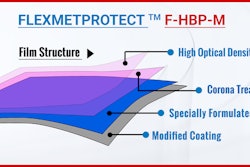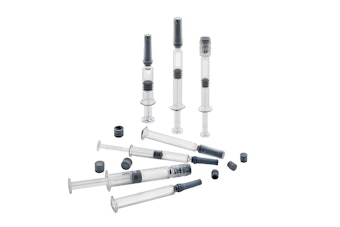While many of us in the packaging community gathered in Chicago for PACK EXPO International 2018/Healthcare Packaging EXPO 2018, the Healthcare Distribution Alliance (HDA) held an Oct. 17-19 Traceability Seminar in Washington, DC.
Among the goals of the seminar: update attendees on where the pharmaceutical supply chain is in relation to achieving Drug Supply Chain Security Act (DSCSA) compliance. For the third year in a row, HDA’s Research Foundation conducted its “Manufacturer Serialization Readiness Survey” to gain unbiased, objective data about the current readiness of manufacturers and repackagers to meet DSCSA’s product serialization requirements, and when distributors can expect to begin receiving serialized product and associated data.
The survey was based on confidential questionnaires e-mailed in June 2018. In all, 57 manufacturers and nine repackagers responded to the survey. Respondents included 15 of the 2017 top 20 pharmaceutical manufacturers by sales and 10 of the top 20 pharmaceutical companies by prescriptions dispensed as listed by IQVIA.
Overall, says HDA, “results indicated that while all manufacturer respondents anticipate that a wholesale distributor will have received their first serialized product by Nov. 27, 2018, based on these data, 100% of product will not be serialized by [then]. The top stated concerns that impact manufacturers’ ability to serialize product include CMO knowledge and delayed delivery of equipment. The other major concern reflected in this survey was meeting the 2019 saleable returns requirements. Some respondents (24%) still do not know how they plan to comply. Additionally, the viability of the Verification Router Service was cited as a major concern, along with the quality of EPCIS messages and onboarding.”
Below are key manufacturer readiness survey results:
• 71% indicated that wholesale distributors are currently receiving serialized products. Companies without repackaging operations represented a higher percentage of those that are currently shipping these products. Additionally, 21% indicated wholesale distributors will receive the first serialized product between June 1, 2018, and Nov. 27, 2018. Only 5% indicated that wholesale distributors will receive the first serialized product from their company after Nov. 27, 2018.
• Manufacturers reported that their generic and/or branded product portfolios will be in varying states of readiness. Nearly half (48% of responding manufacturers and repackagers of generic product portfolios and 61% of manufacturers of branded product portfolios indicated that 100% of products will be serialized by Nov. 27, 2018.
• All repackagers indicated they had concerns with, or obstacles to, serializing product by November 27, 2018.
• Two-thirds (67%) of repackagers indicate they anticipate serializing 100% of products after Nov. 27, 2018.
• Despite 86% of manufacturers indicating last year that they had no concerns with serializing by Nov. 27, 2018, 42% of all suppliers indicated they had concerns with the requirement to serialize product by that date. For those manufacturers with concerns, 65% cited “contract manufacturing organizations (CMOs) knowledge of DSCSA,” 39% cited “delayed delivery of equipment,” and 34% noted “operation or scheduling concerns.”
Serialized data and data exchange
• 30% of respondents anticipated sending serialized data to wholesale distributors upon shipment by Nov. 27, 2018. Additionally, 41% indicated they will send serialized data between Nov. 27, 2018 and Nov. 27, 2019; and 21% said they will send serialized data between Nov. 28, 2020 and Nov. 27, 2023. Some 7% of respondents were unsure of when they will send serialized data.
• 45% of respondents indicated they will aggregate data (units to case) on all SKUs in 2018. Nearly one-quarter, 23%, would aggregate data on all SKUs by Nov. 27, 2019. Another 18% noted that they will not be aggregating data on all SKUs by Nov. 27, 2023. And 9% of the companies reported they do not plan to aggregate at any point in time.
• About 16% of respondents plan to use GS1’s Electronic Product Code Information Services (EPCIS) to exchange data for all product transactions with wholesale distributors by the end of 2018. Half of the respondents anticipate using EPCIS standards for data for all product transactions in 2019. These numbers mirror what manufacturers reported last year. Meanwhile, 20% plan to use EPCIS for all data exchange after Nov. 28, 2020. Nearly one-quarter, 22%, are unsure of when they plan to exchange data via EPCIS for all products with wholesale distributors.
2019 saleable returns verification
• 56% of respondents have concerns with verifying the product identifier to meet the 2019 saleable returns requirements. Among those with concerns, 71% reported “concerns with viability of the Verification Router Service,” 58% said “unsure of which method my company will use to verify saleable returns,” and nearly one-third noted “quality of EPCIS messages,” “not currently onboarded with trading partner,” “operational concerns,” or “ability to expose product identifier data for responding to requests,” respectively.
• 36% of manufacturers plan to support saleable returns verification requirements by sending EPCIS messages to wholesale distributors, whereas 42% indicated they plan to employ the verification router service when available.
• Only 22% of respondents indicated they have a process to respond to verification requests from non-direct purchasers. Additionally, 35% noted their direct purchasers will conduct a verification request on behalf of non-direct trading partners. More than half (51%) of respondents reported they are unsure how their company will support these requests.
General findings
• About half of respondents are participating in internal and external DSCSA-related pilots.
• Of those conducting internal pilots, a quarter were focused on serialization and 2019 wholesale distributor returns verification. Meanwhile, 4% were focused on dispenser requirements, with 15% focused on 2023 interoperability.
• For external pilots, the majority, at nearly 85%, focused on the 2019 wholesale distributor returns verification, 46% on serialization, 42% on 2023 interoperability, 11% on 2020 dispenser requirements and 15% on other DSCSA-related pilots.
• Of the product manufacturing lines in scope for serialization reported in this survey, 45% were internal lines and 55% were external lines managed by a contract manufacturer. Respondents reporting on external manufacturing lines were more likely to indicate that distributors will start receiving serialized product between June 1, 2018, and Nov. 27, 2018.






















